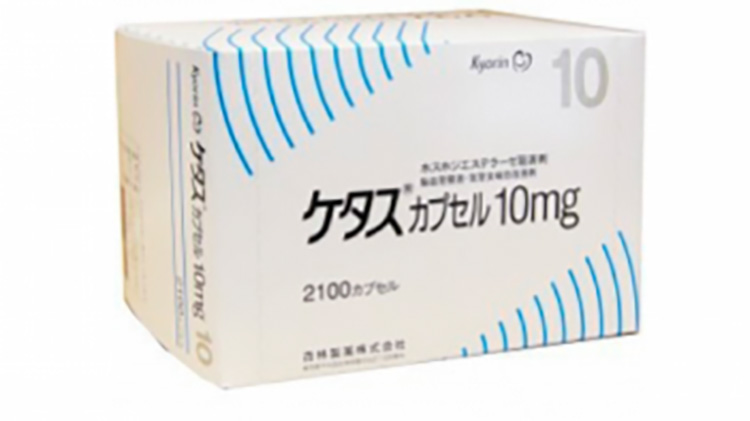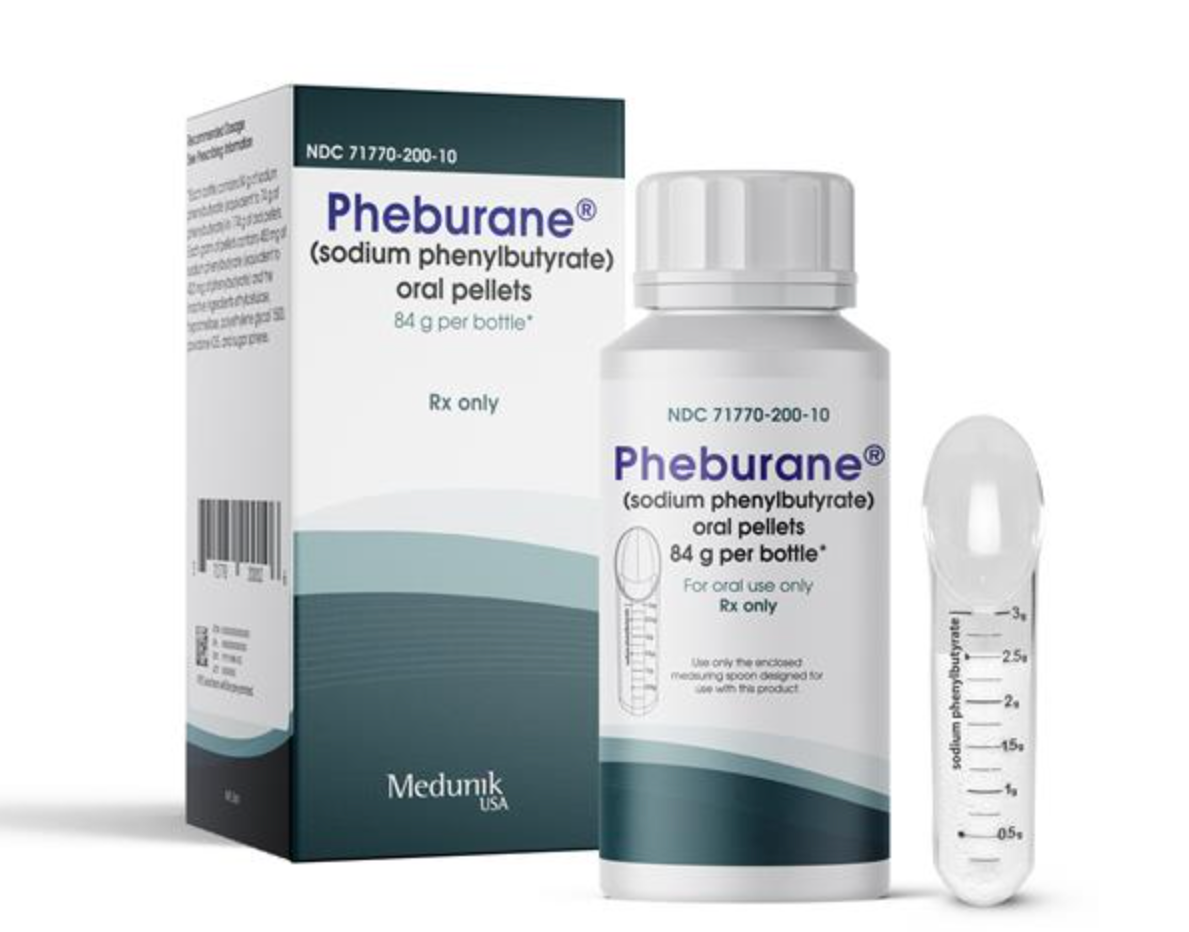Ketas (ibudilast) vs Pheburane (sodium phenylbutyrate)
Ketas (ibudilast) vs Pheburane (sodium phenylbutyrate)
Ketas (ibudilast) is a phosphodiesterase inhibitor with neuroprotective and anti-inflammatory properties, primarily used in Japan for the treatment of asthma and post-stroke complications, and it is currently being investigated for potential off-label use in treating neurodegenerative diseases, such as multiple sclerosis and ALS. Pheburane (sodium phenylbutyrate) is a medication that is used to treat urea cycle disorders, which are genetic disorders that cause ammonia to accumulate in the body due to a deficiency in one of the enzymes needed to convert ammonia into urea. While Ketas is focused on inflammatory and neurological conditions, Pheburane is specifically aimed at managing metabolic disorders; therefore, the choice between the two would depend on the specific condition being treated, as they address very different medical needs.
Difference between Ketas and Pheburane
| Metric | Ketas (ibudilast) | Pheburane (sodium phenylbutyrate) |
|---|---|---|
| Generic name | Ibudilast | Sodium phenylbutyrate |
| Indications | Asthma, cerebrovascular disorders, and multiple sclerosis | Urea cycle disorders |
| Mechanism of action | Phosphodiesterase inhibitor, suppresses pro-inflammatory cytokines | Converts to phenylacetate which conjugates with glutamine to form phenylacetylglutamine, thereby reducing ammonia levels |
| Brand names | Ketas | Buphenyl, Pheburane |
| Administrative route | Oral | Oral |
| Side effects | Nausea, dizziness, rash, and gastrointestinal discomfort | Body odor, headache, nausea, vomiting, and amenorrhea |
| Contraindications | Hypersensitivity to ibudilast or any component of the formulation | Hypersensitivity to sodium phenylbutyrate or any component of the formulation, hepatic encephalopathy |
| Drug class | Phosphodiesterase inhibitor | Ammonia scavenger |
| Manufacturer | Kyorin Pharmaceutical Co., Ltd. | Horizon Pharma (for Buphenyl), Lucane Pharma (for Pheburane) |
Efficacy
Efficacy of Ketas (Ibudilast) in Amyotrophic Lateral Sclerosis (ALS)
Ibudilast, known commercially as Ketas, is a phosphodiesterase inhibitor that has been primarily used in the treatment of asthma and post-stroke complications. Its efficacy in Amyotrophic Lateral Sclerosis (ALS) has been explored due to its neuroprotective and anti-inflammatory properties. While research is ongoing, some studies suggest that Ibudilast may slow the progression of ALS. However, it is important to note that the drug is not currently approved for the treatment of ALS by regulatory agencies, and more robust clinical trials are needed to confirm its efficacy and safety for patients with this condition.
Current Research on Ketas (Ibudilast) for ALS
Clinical trials have been conducted to evaluate the potential benefits of Ibudilast in ALS. For instance, a phase 2 trial (ClinicalTrials.gov Identifier: NCT02238626) assessed the safety, tolerability, and preliminary efficacy of Ibudilast in people with ALS. The study measured outcomes such as changes in the ALS Functional Rating Scale-Revised (ALSFRS-R) and forced vital capacity (FVC). While initial results were promising, indicating a slower rate of disease progression, larger-scale studies are necessary to fully understand the impact of Ibudilast on ALS and to determine appropriate dosing.
Efficacy of Pheburane (Sodium Phenylbutyrate) in Amyotrophic Lateral Sclerosis (ALS)
Pheburane, the trade name for sodium phenylbutyrate, is a drug approved for the treatment of urea cycle disorders. Its role in ALS is based on its potential to reduce neuronal stress and promote neuronal survival. Research into sodium phenylbutyrate for ALS is less advanced than for some other investigational drugs, and its efficacy for this indication remains to be fully established. As with Ibudilast, sodium phenylbutyrate is not currently approved for the treatment of ALS, and its use in this context would be considered off-label.
Research and Clinical Trials Involving Pheburane (Sodium Phenylbutyrate) for ALS
Studies have investigated the combination of sodium phenylbutyrate with other compounds, such as tauroursodeoxycholic acid, to determine their synergistic effects on ALS progression. For example, a clinical trial (ClinicalTrials.gov Identifier: NCT03127514) is exploring the combination of these two drugs and their impact on disease progression and survival. The outcomes of such trials are crucial to ascertain the potential role of sodium phenylbutyrate in the treatment of ALS, and until more data is available, its efficacy in this disease remains speculative.
Regulatory Agency Approvals
Ketas
-
Pharmaceuticals and Medical Devices Agency (PMDA), Japan

Pheburane
-
European Medical Agency (EMA), European Union

-
Food and Drug Administration (FDA), USA

Access Ketas or Pheburane today
If Ketas or Pheburane are not approved or available in your country (e.g. due to supply issues), you can access them via Everyone.org.
How it works

Make an enquiry
Choose the medicine you want to buy, answer a couple of questions, and upload your prescription to speed things up. We’ll get back to you within 24 hours.


Make an enquiry
Choose the medicine you want to buy, answer a couple of questions, and upload your prescription to speed things up. We’ll get back to you within 24 hours.


Breeze through the paperwork
We'll guide you through the required documents for importing unapproved medicine, ensuring you have all the necessary information.


Get a personalized quote
We’ll prepare a quote for you, including medicine costs and any shipping, administrative, or import fees that may apply.


Receive your medicine
Accept the quote and we’ll handle the rest - sourcing and safely delivering your medicine.

Some text on this page has been automatically generated. Speak to your physician before you start a new treatment or medication.
Let's talk
If you have any questions, call us or send us a message through WhatsApp or email:
Contact us




